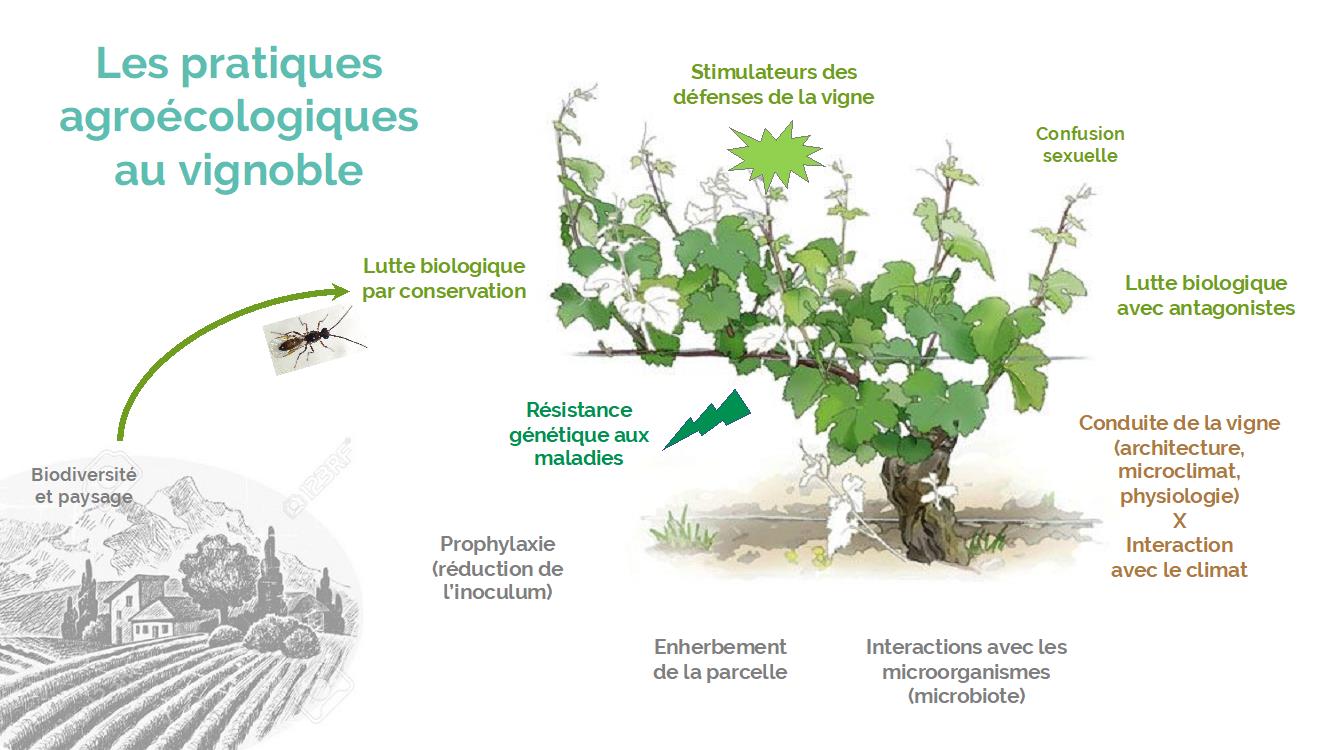Pesticide-free wines are increasingly appealing to consumers in search of naturalness. But is this approach simply a trend or a genuine commitment to the environment and health?

The rise of pesticide-free wines
A response to consumer expectations
Today, more and more wine lovers are looking for bottles produced in an environmentally-friendly way. Ecological wine meets this demand by guaranteeing a culture free of synthetic products.
Strict specifications
Contrary to popular belief, producing pesticide-free wine is not simply a matter of avoiding chemical treatments. It requires rigorous practices, from vine cultivation to vinification. The absence of pesticides also means a commitment to preserving biodiversity and a living soil.
Organic and biodynamic farming: what are the differences?
Organic farming: a first step towards a more natural wine
Organic wines must comply with strict rules:
- Ban on chemical pesticides and herbicides.
- Use of natural fertilizers.
- Vinification with a minimum of inputs.
This method results in more authentic wines that reflect their terroir.
Biodynamics: a more holistic approach
Some winegrowers go even further with biodynamic viticulture, a practice based on respect for lunar cycles and the use of natural preparations. These techniques aim to reinforce the natural balance of the vineyard to produce an exceptional ecological wine.
The challenges of pesticide-free wine production
Often lower yields
One of the main obstacles to pesticide-free wine production is lower yields. Without chemical treatment, vines are more exposed to disease, which can have an impact on the quantity of grapes harvested.
Increased vigilance in the vineyard and cellar
Winegrowers committed to a zero pesticide approach must anticipate climatic and biological risks. This involves :
- Rigorous monitoring of plots.
- The use of companion plants to repel certain insect pests.
- Native yeasts for fermentation.
Labels to identify pesticide-free wine
Organic labels and environmental certifications
To be sure of buying an ecological wine, several labels exist:
- AB (Agriculture Biologique): guarantees the absence of synthetic pesticides.
- Demeter and Biodyvin certify biodynamic wines.
- HVE (High Environmental Value): encourages sustainable practices, but authorizes certain treatments.
Pesticide-free wine: a viable alternative for the future?
Reduced environmental impact
By limiting the use of chemical inputs, organic vineyards help to regenerate the soil and preserve water resources. A considerable advantage for future generations.
A return to the authentic taste of wine
Chemical-free, the grapes fully express the specific characteristics of their terroir. Ecological wine enthusiasts appreciate these livelier cuvées, which are often less standardized than conventional wines.
Conclusion: a commitment for the future
Pesticide-free wines represent a significant step towards more sustainable, environmentally-friendly viticulture. Although challenges remain, this approach reflects a strong commitment to preserving the health of consumers and the planet.
If you enjoyed this article, you may also be interested in "Why are some wines more expensive than others?





